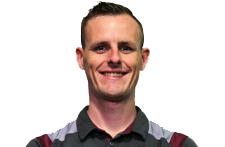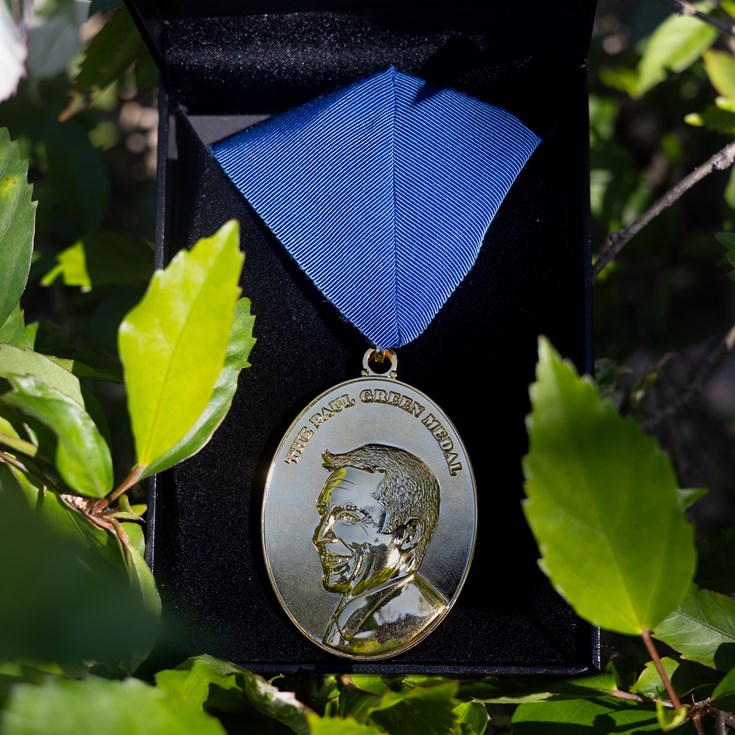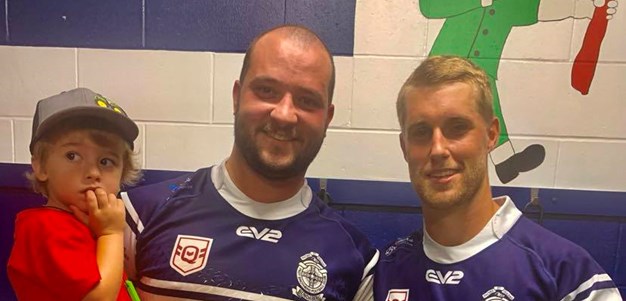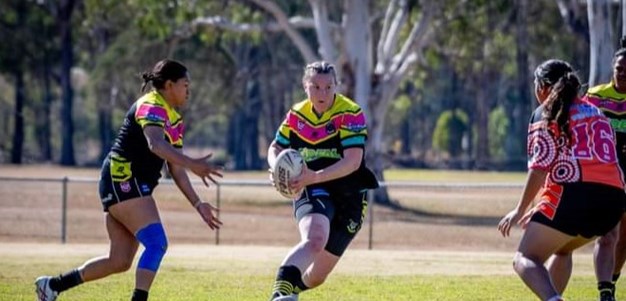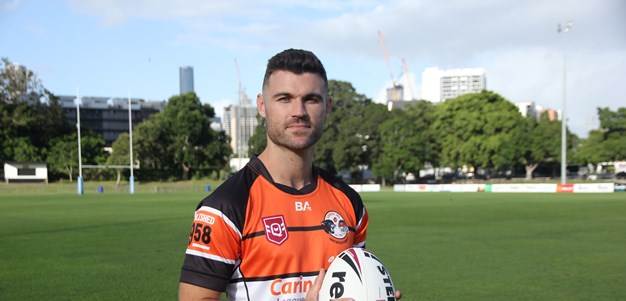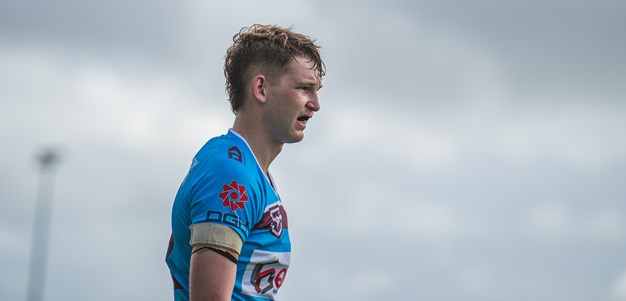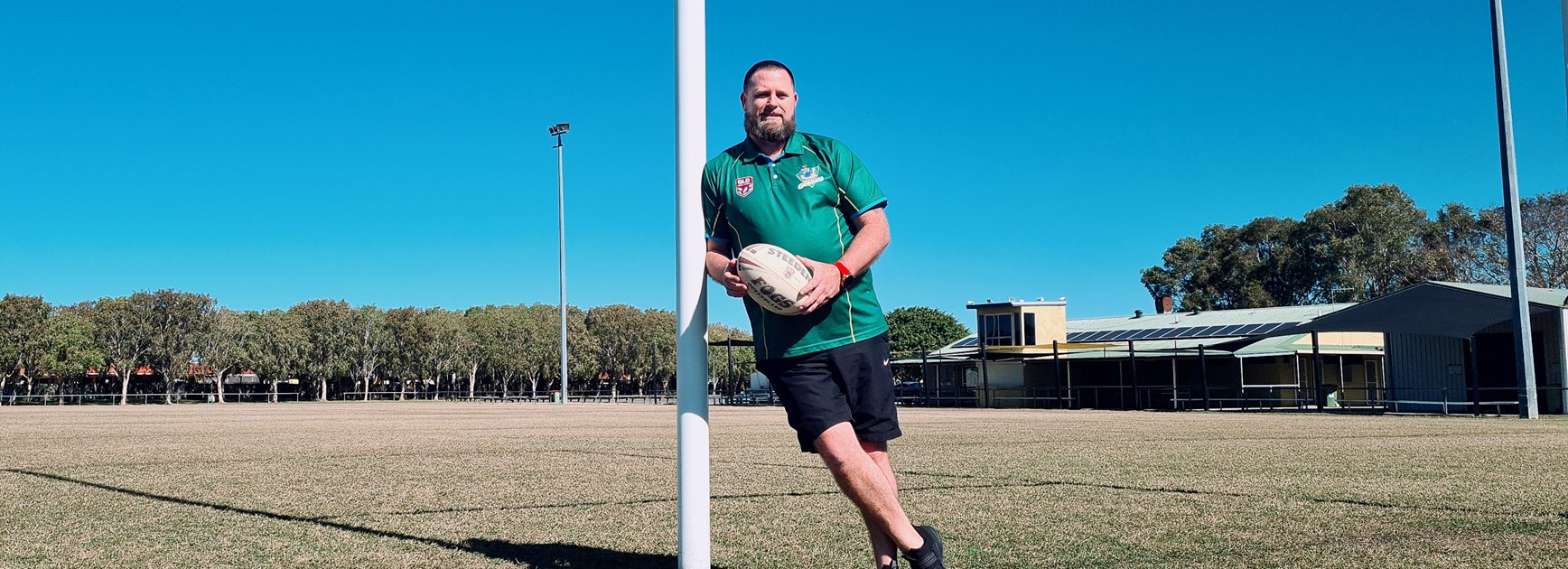
Adam Flier has taken giant strides to improve mental health literacy in South East Queensland since hanging up the boots.
Successfully founding Gold Coast Men's Walk and Talk in 2019, where males of all ages are welcomed into a safe space to share their story with others who have had similar experiences, the former Helensvale Hornet and Ormeau Shearer now has his eyes firmly set on helping launch a new program he feels would have helped him when coming through the junior grades.
In partnership with Queensland Rugby League's wellbeing team, the Support Squad has been formed to help community rugby league be better with their wellbeing and involves recruiting a squad member at each grassroots club across the state and empowering them with knowledge and education to help improve mental health literacy.
As one of the inaugural members of the squad in a pilot of the program to roll out on the Gold Coast, the 46-year-old is keen to be part of the support network to help players of all ages after growing the program alongside the QRL earlier this year.
"I played as a younger fella in Sydney but gave it away due to distractions... girls, drinking and drugs etcetera when I was about 17 or 18," Flier said.
"I was coming through the grades at Parramatta and thought I was going to make it but then got distracted and thought 'no... I'm going to do other things'. It wasn't until my late 20s that I started playing again here on the Gold Coast with Helensvale and Ormeau. I retired about six years ago but I still play masters, coach seniors with Helensvale and have coached there for about eight years.
"When I began coaching, I realised there was more to winning than just winning. I wanted to make sure I was on a personal basis with the guys and try to tap into their wellbeing and mental health space.
"Even reflecting back on when I was a young fella, seeing how I didn't have the support network around me and went off the rails and didn't want to play footy... I wanted to do other things because I didn't have that support network, so once I got my head around the mental health side of things as an older person I thought, 'well you know what, we need to do more about looking after our grassroots footy players'.
"I run a men's walk and talk here on the Coast and decided on the back of that to study a diploma of mental health at Queensland TAFE which I needed some work placement with that. I ended up at the QRL with Trish [Walding] and Dayne [Weston].
"Sitting down with Trish and working out what my goals were... my goals were very similar to what they wanted as a member of support squad. They had started some work on it and I started working alongside Trish and we came up with a bunch of ideas and threw some away and pulled some back again and Dayne had a bunch of new ideas and then it went from there."
Being heavily involved in rugby league in the South East, the former Gold Coast player and coach has seen some of the issues facing community footy first hand and is euphoric to be a key stakeholder in the exciting new program.
"I've seen from a local point of view on the Coast - not just alone but through grassroots footy down here... there's been a number of clubs that have had a real tough time the last few years with people taking their own life or self-harm issues," Flier said.
"There's even even drug and alcohol issues around our game which need to be addressed and looked at.
"Obviously the top-ranked footballers, the guys in the Intrust Super Cup and stuff like that, get more support through the wellbeing programs, where the guys in local league have to go up to their president or their coach and nine times out of ten, the coach will go 'yeah, cool mate... there's not much I can do sadly but go and have a chat to your mate', which doesn't always work out for them.
"Once I found out that we were going to work on something to provide support to the grassroots level, I was extremely stoked to be part of that."
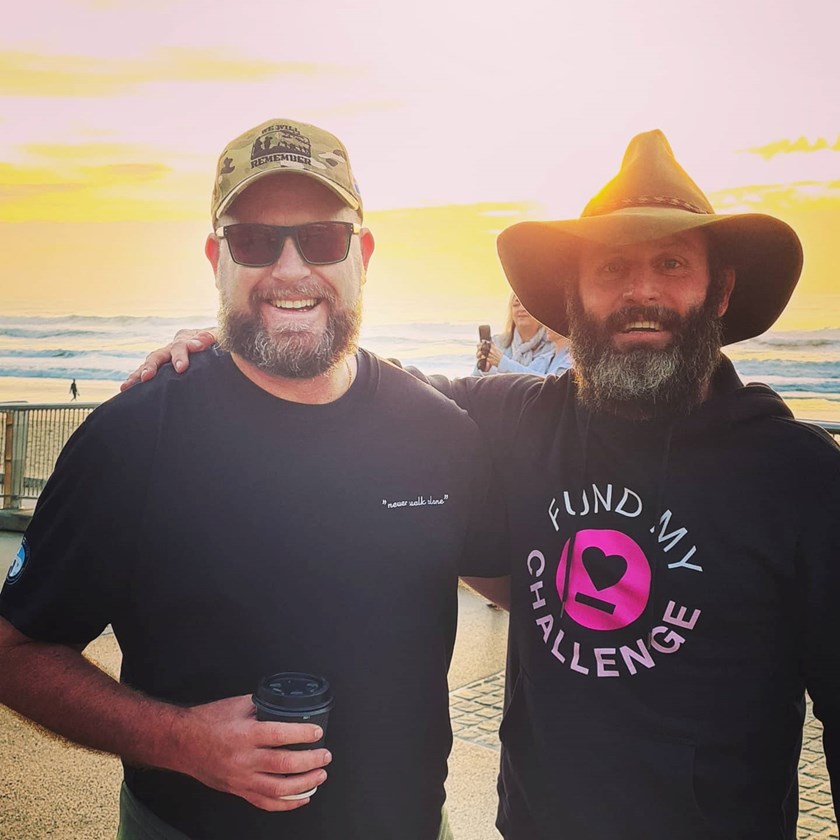
Not only are grassroots participants influenced with the likes of drugs and alcohol, but the pressures of everyday life such as work, relationships and home pressures can also attribute to a decline in mental health and poor choices.
"Drinking, drugs and the likes aren't the only outside influences... there are work pressures, family pressures - a lot of these local footballers have jobs and families and even if you look at the junior side of things, you've got mums and dads that are struggling with jobs or potentially broken homes or broken families and things like that or they don't have enough money to put food on the table," Flier said.
"I know doing the LifeFit program with some of the kids in the South Brisbane RISE program, we spoke about food on one occasion and there were a couple of kids who didn't put their hand up because they were either embarrassed or weren't getting the proper nutrition required to play a proper game of footy.
"For me, as the journey has gone on further and further with the Support Squad side of things, I've become more and more passionate about it... it's become a bit of a fire in my belly.
"We play a tough game but without a tough mind, we're going to struggle at the real game, which is life, so we need to get that out of it to be honest.
"Helping grassroots young people, old people, assist them with their wellbeing and mental health struggles and more based around a strength-based person-centred approach... not just 'here's this, here's that... go on and leave us alone'.
"We can actually give them some real on the ground help with some things and I'm really excited about getting that out of it to be honest."
At a low cost of $100 to join the squad, which includes Mental Health First Aid accreditation, education and training from ALIVE and wellbeing resources to help you support your local club, Flier encourages those who have a passion to make a difference to sign up.
"If your heart is there, get involved because we're losing far too many young people and older people to be honest," Flier said.
"We have nine deaths a day with people taking their own lives is far too many so for me, anyone who wants to get involved, my encouragement would be to do it.
"The cost of it is worth it given you're going to get a couple of valuable things under your belt to help you out with Mental Heath First Aid training and the ALIVE project coming onboard to help us out as well. There's going to be a lot of community support and outside stakeholders that can help you out along the way."
With Support Squad only in its infancy, Flier hopes to see it grow across Queensland and across Australia.
"I'd eventually love to see a Support Squad member at every club across the state and even nationally to be honest," Flier said.
"Mental fitness and wellbeing is a real part of life now and if we don't have grassroots footy, we won't have a game in the future.
"If we can evolve the Support Squad into something bigger and better, then that will be fantastic. Hopefully some stakeholders come onboard, whether it's corporate sponsors or other wellbeing networks, that can jump in and help, that would be fantastic.
"If we're all aiming to achieve the same thing, why not jump in and help out."
To find out more and register your interest to join the Support Squad, click here.
Crisis support can be found at Lifeline (13 11 14 | lifeline.org.au) or Kids Helpline (1800 55 1800 | kidshelpline.com.au).
